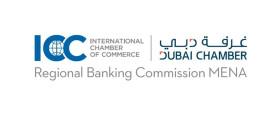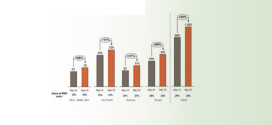Bank of America Merrill Lynch has announced that a new payments capability is available on CashPro®Online, the company’s worldwide banking portal.
Corporate and government clients of all sizes utilising CashPro can now transact low-value cross-currency payment into 29 countries, at the same time benefiting from reduced costs and improved efficiency.
“We’re pleased to add this new capability to CashPro Payments and extend the available options that clients have to initiate their cross-border low-value payments,” said Ather Williams, head of global payments and global transaction services strategy.
“Companies, governments or institutions that send low-value payments to international payees now have the convenience of making those transactions through the same portal they use to initiate wire transfers, make domestic payments, view their cash positions and run reports.”
“In building this new capability, we are giving our clients the flexibility to manage their low-value cross-currency payments from whichever channel best suits their needs – either our online portal or through file delivery,” said Cindy Murray, head of global treasury product platforms and e-channels. “It’s the latest development in the company’s ongoing investment in CashPro Online, which remains a signature capability of Bank of America Merrill Lynch.”
With its new functionality, CashPro Payments allows companies to make recurring low-value cross-currency payments that are either business-to-business or business-to-consumer.
• Business-to-consumer payments can include: pension or salary payments, insurance claims payouts, sales incentives or commissions, rebates, royalties or dividend distributions.
• Business-to-business payments may include: vendor and utility payments, marketing, advertising or legal payments, consulting and outsourcing expenses.
The advantages of using CashPro Payments are said to include the replacement of cheques so that payees receive their funds in a more secure electronic environment and don’t have any fees or processing costs; the lifting of fees associated with correspondent banks; improved accuracy of cashflow forecasting; and lower exposure to potential losses associated with cheque fraud.
 Cash And Trade Magazine For Cash and Trade professionals in the Middle East
Cash And Trade Magazine For Cash and Trade professionals in the Middle East




